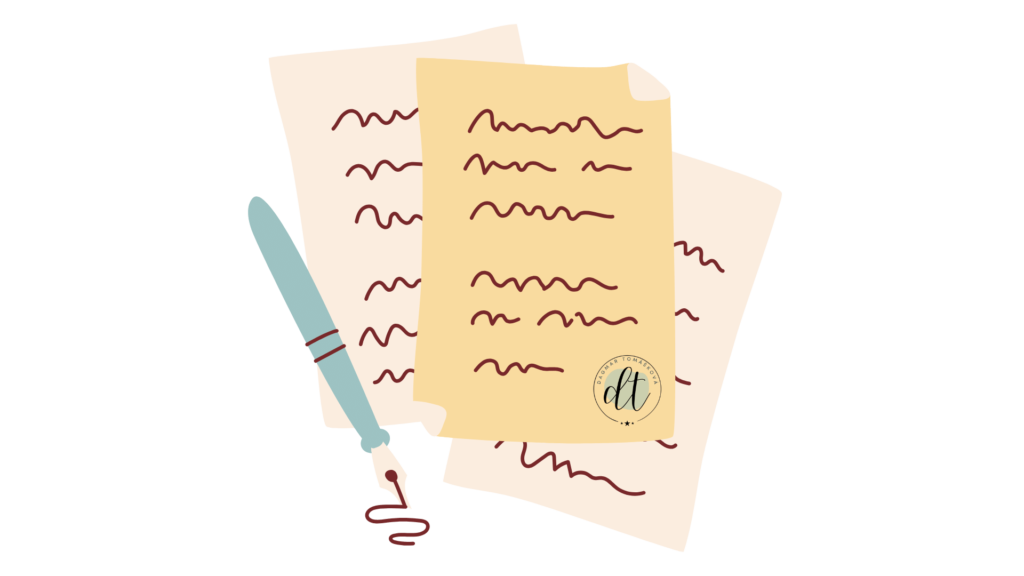
Ep. 78: Working Abroad, Studying Abroad and English Exams Q&A

Today I am going to answer a few questions I received on Instagram. I put up a story with a window for questions and asked you to give me questions about working abroad, studying abroad, English exams, and maturita. So here I chose a few of these questions, let’s go.
LISTEN TO THE EPISODE HERE:
Soon!


WRITTEN TRANSCRIPTION OF THE PODCAST
Hello and welcome to my podcast My Life and Other Funny Stories. My name is Dagmar Tomášková, I am an English tutor and coach and I created this podcast for English students who want to improve their oral comprehension. As always, you can find the transcription of this episode and vocabulary list in the notes of the podcast.
Today I am going to answer a few questions I received on Instagram. I put up a story with a window for questions and asked you to give me questions about working abroad, studying abroad, English exams, and maturita. So here I chose a few of these questions, let’s go.
How did you get a job abroad? Was it difficult to find a summer job?
So, if anyone here doesn’t know, I spent two summers working abroad. The first time was in 2019 when I went to Scotland and then 2022 to Iceland. Both of these times were great but to be honest, when I look back at it, my work in Scotland was quite difficult and the pay wasn’t so good, but back then, I had nothing to compare it to and that is why I didn’t have a problem with it.
I didn’t work with any working agency, I decided to find these jobs by myself online. I joined different Facebook groups such as “Work in Scotland” or “Czech and Slovaks in Iceland” and so on and also just found hotels in Scotland and Iceland, and was sending out emails with my CV and cover letter. I am not going to lie, it was not a walk through the park, it took some time. People either completely ghost you or just reject you. And that’s fine, you just need to be determined. But if you take enough time, you will find something. They always look for people in the hospitality industry somewhere. Anyway, once someone answered, we had a call. For Scotland, it was just a phone call and for Iceland it was a video call. You don’t need a high level of English for the work, but they want to check that you understand at least roughly.
What were your typical workdays like?
In Scotland, it was a bit more challenging because I was working for 4 hours in the morning and 4 hours in the evening as a waitress in a hotel restaurant and then had housekeeping shifts during the day sometimes. That made enjoying your free time quite difficult because I was so tired all the time and the only times I could enjoy myself were during the days off, which were not so frequent.
In Iceland, we were working a classic 9-5 job as cleaners, which was great because we just got our assignment every day, worked for a few hours, then had a break for lunch and continued after that. It was a very chill job and compared to Scotland, it was so enjoyable. In Scotland, you couldn’t sit down, it was all very rushed and there was little room for mistakes. In Iceland, I could basically work at a normal pace, listen to podcasts and songs and as long as the job was done well and in time, no one cared how fast I was working.
Still, two or three months was enough, after a while, it gets very easy and every day is the same. I was enjoying it at that time because my brain was fried from my master’s degree exams, writing theses and working two tutoring jobs, so working with my hands was a nice change. But I started to miss having something to think about and learning new things. It is nice to make money and travel in your free time, but working there for more months or even years would be impossible for me.
Why did you choose France for your Erasmus? How did you apply?
Okay, now we are getting to my studies abroad. I only went for one semester, so don’t take me as the authority on studying abroad, but let’s get to it. I chose France because I really wanted to push myself out of my comfort zone and improve my French, on which I had been working on for a few years at that point. So, you need to apply through your university, naturally, and the conditions of applying depend on your university and also the hosting university. For example, I had to already have a B2 level certificate of French to apply. I didn’t have any official exam that would prove my level, and I wasn’t even sure that my level was at that level, but I asked my French teacher at the university to write me a confirmation that I had this level and they accepted it.
You usually have to fill in a form, write a cover letter, explain why you want to study at that university, and what subjects caught your eye. So I recommend taking the time for it and really go through the university’s website.
How did you adapt to the French environment? Did you speak more English, French, or a mix of both?
It was quite hard to get used to the fact that French people, including people working at the university, couldn’t speak French very well. So my adaptation process was rather slow. When it comes to the language, with people outside school, I was trying to use French as much as possible, but I relied on English a lot. At school, it was also a mix of these two as the teachers were fluently jumping from English to French from time to time. But as my best friend was Audrey, who is American, I spent a lot of time speaking in English anyway.
What motivated you to take the FCE exam?
I took the FCE exams when I was 18 at my high school. The main motivation was the fact that I wouldn’t have to do the maturita exam. Because at my high school, we had to choose five maturita subjects, not only four, so I tried to make it easier for myself and decided to devote my time to FCE preparation during my third and fourth year of high school.
How did you prepare for the exam?
I had a FCE course at school which was very helpful. We wrote a lot of tests and it was like a subject at school so I was very motivated to keep up my grades. Also, I had a friend, who also wanted to pass the exams, so we were studying together, practising speaking and overall supported each other throughout the process.
I think it is very important to know the structure of the exam and relentlessly practice the types of exercises again and again until you get better.
How did you prepare for your maturita exam in English? Did you have a strategy?
Well, as I have already mentioned, I didn’t have to do the English maturita exam because I passed my FCE exam. But I was also preparing for the maturita exam in French, where my level of language wasn’t anywhere near that of my English one. I only had the oral exam where I had to choose from around 20 topics. As I didn’t feel confident at all, I prepared a full text of everything I would like to say about each topic and came up with potential questions I could be asked during the exams. I highlighted all vocabulary that was challenging for me and drilled it into my brain as much as possible.
However, if you are preparing or will be preparing for the state exam in English, the most important part is to start preparing in advance. The thing is that English is not something you can memorize, you have to have a certain understanding of the language to pass the exam. So start learning months and months in advance. Another thing is to define which parts are the most problematic for you and start working on those the most. Is speaking the biggest problem? Work on it extra. Identify your strengths and weaknesses and learn from your mistakes.
Okay, those are the questions I chose for this episode. If you have any other questions, feel free to write me a message on Instagram, I am happy to answer.
Thanks for listening to this episode. If you enjoyed it, don’t forget to subscribe and share it with a friend. I’ll see you next time for another fun episode.

VOCABULARY LIST
abroad – zahraničí
hospitality industry – pohostinství (obor)
ghost (someone) – přestat s někým komunikovat bez vysvětlení
determined – odhodlaný
assignment – úkol, přidělená práce
rushed – uspěchaný
pace – tempo, rychlost
fry (one’s brain) – úplně vyčerpat mozek
authority on (something) – odborník na (něco)
comfort zone – komfortní zóna
certificate – certifikát, osvědčení
hosting university – hostitelská univerzita
fluently – plynule
devote (time to something) – věnovat (čas něčemu)
relentlessly – neúnavně, vytrvale
drill (vocabulary) into one’s brain – nadrtit se slovní zásobu
define (problem areas) – určit (problémové oblasti)
strengths and weaknesses – silné a slabé stránky